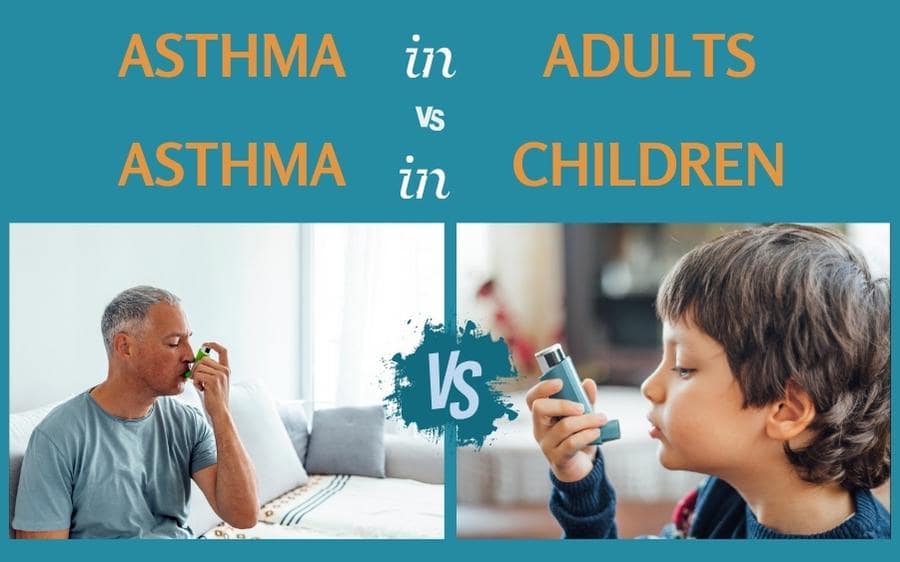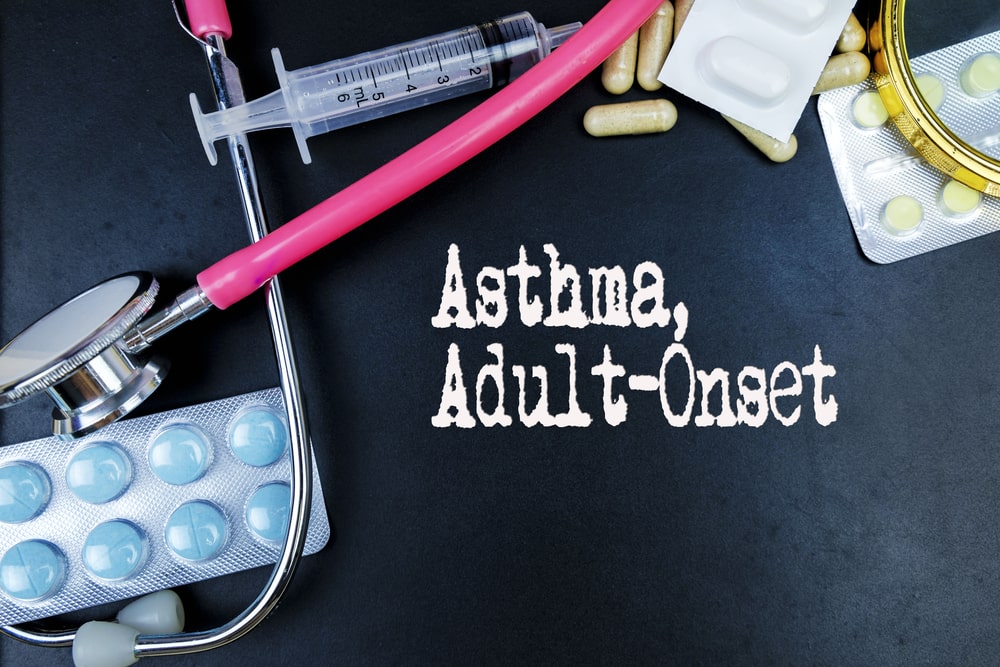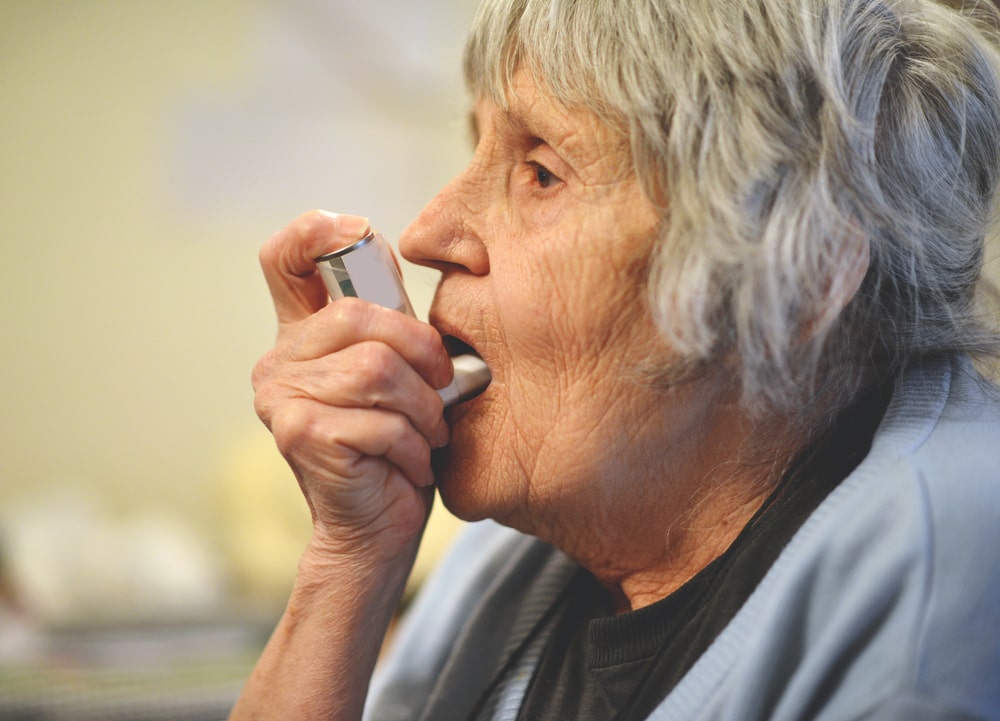An estimated 25 million people in the USA suffer from asthma, which is characterized by intermittent and persistent lung inflammation. The first diagnosis of asthma in many cases occurs in childhood; it becomes quite debatable to understand whether can a person get asthma later in life.
Asthma is a chronic respiratory condition that affects millions of people worldwide. While it often begins in childhood, it’s not uncommon for individuals to develop asthma later in life. Additionally, Nowadays, adults-onset asthma is a growing problem. Let us understand more about Asthma can a person get asthma later in life and how can we prevent it in the article.
Can a person get Asthma later in life?
Many people deny the fact that can a person get asthma later in life. To understand more about Getting asthma later in life let us understand About Asthma. In simple words, asthma is an illness that can occur to anyone and at any age like any other disease. However, it is generally seen, and diagnosed in childhood but Late-onset asthma is also found in adults.
What is Late Onset Asthma?

When asthma symptoms start to appear in adults after the age of 40, it’s known as having a late onset. While it frequently starts in childhood, asthma can also develop later in adulthood. Therefore a simple answer to can a person get asthma later in life is, yes it can. Late-onset asthma frequently co-occurs with other illnesses such as allergies, obesity, or GERD. Effective asthma management may include taking care of these comorbidities.
- Adult asthma affects more women than males, and its precise cause is not understood. Adult asthma is more likely to develop if you:
- Possess allergies
- Smoke
- Are fat or overweight
- Have a breathing disorder
- Irritants to the respiratory system
Adult or late-onset asthma is more likely to affect menopausal women. Adults frequently endure persistent wheezing and breathing problems, unlike children who typically have no symptoms in between flare-ups.
Although late-onset asthma may cause distinct challenges, numerous people can lead active, healthy lives with the right diagnosis and treatment. Therefore it becomes quite important to understand and timely diagnose the adult onset of asthma and seek appropriate treatment from a healthcare provider to avoid further respiratory illness.
Why does Adult-Onset Asthma occur?

When people hunt and ask can a person get asthma later in life the very next question is why and how it can happen at a later stage. To understand causes of late-onset asthma include:
- Environmental Factors: Contact with allergens or irritants in the environment is a frequent cause of adult-onset asthma. This can include living in places with high levels of air pollution or being exposed to chemicals or dust at work.
- Age and Allergies: Asthma symptoms can be brought on by allergic reactions, which can also cause allergies to worsen. Adults who previously had no symptoms of asthma may develop them as a result of exposure to pollen, dust mites, or pet dander, for instance.
- Infections of the respiratory tract: Viral respiratory infections can harm the airways, rendering them more vulnerable to the effects of asthma. Asthma can appear in adults after a serious respiratory infection.
- Hormonal Changes: In some cases, asthma symptoms in women can be brought on by hormonal changes, such as those that take place during pregnancy or menopause.
- Obesity: Adults who gain too much weight may get asthma symptoms. Obesity is a risk factor for developing asthma
Symptoms of Adult-Onset Asthma:

To learn more about Can a person get asthma later in life, one should know how to differentiate between asthma and other respiratory illnesses. Adult asthma symptoms can differ from person to person. A person with asthma may have very different experiences from you. However, some typical signs of adult asthma include:
- Having trouble breathing
- Chuckling late at night or in the morning, especially after exercising
- Chest constriction
- Wheezing
- Breathing difficulty
- Difficulty falling asleep because of coughing or shortness of breath
How to diagnose Asthma in adults?

You must get a medical checkup if you think you may have adult-onset asthma. Adult-onset asthma can be diagnosed by your doctor by:
- Take your medical history, find out about your symptoms, and pay attention to your breathing.
- Check for asthma symptoms while listening to your lungs during a physical examination.
- Lung function tests, including spirometry, are used to assess your lung capacity. Using a spirometer to assess your ability to quickly and fully empty your lungs after taking a deep breath will allow you to do a lung function exam. You could be asked to take a short-acting bronchodilator (a drug that relaxes tight muscles and helps clear mucus from the lungs) before or after the test.
- Conduct an allergy test to find probable allergens.
- Imaging tests like X-rays or CT scans are used to rule out other respiratory illnesses.
- Doing a methacholine challenge test, which is a possible asthma test If the lung function declines by at least 20%, the methacholine test is deemed positive, indicating the presence of asthma.
Asthma in Adults vs Asthma in Children:

When asthma becomes evident in young children, the condition typically appears as intermittent symptoms. When exposed to certain triggers or a respiratory infection, they may exhibit symptoms.
Adults who are diagnosed with asthma later in life typically experience ongoing and persistent symptoms. Adult asthma can be more difficult to control. This is because adult asthmatics typically undergo a faster loss of lung function than children do. Similarly, adults are more likely than kids to pass away from an asthma episode.
In 2019, asthma claimed the lives of 3,5242 persons, the majority of whom were older than 18. Adult asthmatics frequently take prophylactic drugs or keep additional asthma medications on hand to address symptoms as soon as they appear.
Treatment for Adult-Onset Asthma:

Let us know more about can a person get asthma later in life and if yes how can we treat it. Although asthma is a lifelong illness, it is manageable. After being diagnosed, you should consult with your doctor frequently to develop a management and treatment strategy that fits your requirements and way of life.
Both oral treatments (pills or liquids) and inhaled medications (using an asthma nebulizer, dry powder inhaler, or metered dose inhaler) can be used to treat asthma. You can, however, consume some asthma drugs orally.
Typical asthma medications for adults consist of:
- The muscles in your airways can be relaxed with bronchodilators, which makes it possible for them to flow air and mucus more effectively. When you have symptoms of intermittent or chronic asthma, you can use a bronchodilator to relieve them.
- Some of the commonly used inhaled corticosteroids for the treatment of asthma include Fluticasone (Flovent), Budesonide (Pulmicort), and Beclomethasone (Qvar). These help to avoid asthma symptoms by reducing airway inflammation.
- Medications like Salmeterol (Serevent) and Formoterol (Foradil) are examples of long-acting beta-agonists (LABA) which are known to be effective in the long-term management of asthma.
- Anti-inflammatory drugs: These treatments help you breathe more easily by lowering swelling and mucus production in your airways. They might be suggested by your doctor as a daily supplement to help manage the symptoms of persistent asthma.
- A specific allergen may cause your asthma symptoms, in which case you may need to take allergy drugs to control them.
In addition, the following things can assist you in managing your asthma:
- Giving up smoking.
- Maintaining a healthy weight (or, if you are overweight, reducing weight).
- Have a rescue inhaler with you at all times.
- Following your doctor’s personalized treatment plan.
- Preventing triggers, such as smoke and dander from pets.
- Reduce the humidity and pollen levels in your home by using your air conditioner.
- To avoid mold spores, regularly clean your home.
Conclusion:
A quick answer for can a person get asthma later in life is yes it can but can be managed properly with care. although asthma usually first appears in children, it is conceivable for people to develop the ailment in their later years. For an early diagnosis and efficient management of adult-onset asthma, it is essential to comprehend the various triggers and risk factors.
It’s crucial to speak with a healthcare provider for a precise diagnosis and individualized treatment plan if you believe you develop asthma later in life or are exhibiting symptoms resembling asthma. Adult-onset asthma sufferers can live healthy lives and effectively manage their symptoms with early diagnosis and treatment.
FAQs:
Can Anemia cause Asthma in adults?
Adult asthma is not directly correlated with anemia. Asthma is a disease with a lack of red blood cells. On the other hand, asthma is a persistent respiratory disease. However, there are some unintended associations between adult asthma and anemia. Fatigue and weakness brought on by severe anemia may increase a person’s susceptibility to respiratory infections.
Can Adults Grow Out of Asthma?
Despite the fact that adults are less likely than children to “grow out of” their asthma, it is nevertheless possible for the condition to alter or become better as people age. Asthma is a chronic illness whose symptoms and severity can change over time.
As they age, some adults with asthma may notice a decrease in the frequency and intensity of their asthma symptoms. Over time, asthma triggers might alter. As people age, certain allergens or irritants that may have in the past provoked asthma may lose their potency or relevance.
Can Smoking cause Asthma in adults?
Smoking can lead to adult-onset asthma as well as exacerbate pre-existing asthma. Smoking tobacco can irritate the airways and cause inflammation, both of which can hasten the onset of asthma symptoms. Smoking increases asthma symptoms in people who already have the condition and make it more challenging to manage.
Can Pneumonia cause Asthma in adults?
Pneumonia is an infection that can cause inflammation and damage to the airways and lung tissue, but it differs from asthma as a separate respiratory disorder. Infection and inflammation have the potential to start asthma attacks or worsen existing asthma symptoms.
Why do you get Asthma later in life?
For a variety of reasons, including several causes rather than just one, asthma can emerge later in life. When people get worried can a person get asthma later in life they should be acknowledged with the right guidance. Adult onset of asthma can be brought on by prolonged exposure to irritants and allergens in the environment.
Age can cause allergies to emerge or intensify. Asthma symptoms can start to appear when allergies get severe. Hormonal changes, Obesity, Genetics, Smoking, and Stress are also some underlying causes that can contribute to developing asthma at a later stage.


